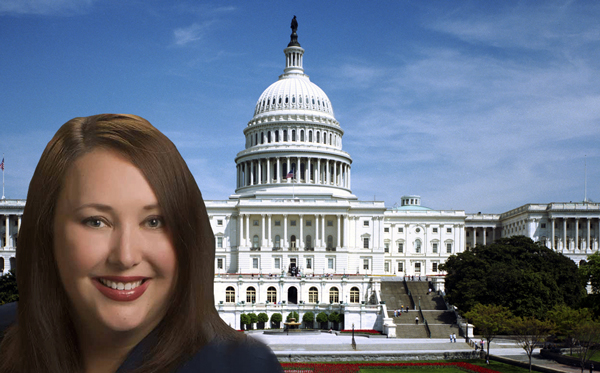Trending
National Association of Realtors’ trench warfare on Capitol Hill
NAR pulls out all the stops to preserve homeownership incentives amid tax reform

Residential brokers faced a major threat in 2001, when the Federal Reserve Board and the Treasury Department considered a rule change that would have allowed national bank conglomerates to enter the real estate brokerage business.
The hotly contested issue pitted the powerful real estate lobby, National Association of Realtors, against Wall Street, which had advocated for the change.
“This is going to be trench warfare,” Alabama Republican Congressman Bob Riley, who co-sponsored a bill to reverse the regulators’ decision, said at the time.
But now, 16 years later, NAR is immersed in an even bigger battle. The group has linked up with allies such as the National Home Builders Association to protect incentives like the mortgage interest deduction from getting gutted in Republican’s tax reform plan.
“It’s the largest grassroots effort we’re trying to focus on that that we’ve ever been behind,” NAR President Elizabeth Mendenhall said on a conference call with reporters last week. The GOP’s plan, she said, amounts to an “all-out assault on homeowners and homeownership.”
The House of Representatives on Thursday passed its reform bill, which in its current form will cap deductions on mortgage interest to $500,000, down from $1 million; eliminate or scale back deductions for state and local taxes; and cut the corporate tax rate from 35 percent to 20 percent.
The Senate is poised to vote on its version of the bill — which as of now would preserve the $1 million MID — sometime after Thanksgiving. If that happens, both houses would go into conference and hammer out a reconciliation.
But there’s a $1.5 trillion cap on the figure those tax cuts can add to the national deficit. And with GOP lawmakers focused on delivering corporate tax cuts, preserving special-interest deductions like the mortgage interest deduction would require those targeted savings to be made up elsewhere.
That once again pits NAR against powerful special interest groups pushing for big corporate tax cuts, such as the U.S. Chamber of Commerce, the American Bankers Association and the RATE Coalition — a group whose members include big businesses like AT&T, FedEx and Walmart, among many others.
But even those on the other side of the debate acknowledge NAR’s clout.
“My impression — as someone who favors repealing the MID — is that the real estate lobby wields enormous power,” said William Gale, a senior fellow at the think tank Brookings Institution. “They are, quite literally, in every district.”
Tax reform has been a huge issue for special interest groups since 2009 and 2010, when the federal government was moving around trillions of dollars through the economic stimulus package, the Dodd-Frank Wall Street Reform and Consumer Protection Act and the Affordable Care Act. But since the beginning of this year, more than 500 new lobbying registrations have listed a focus on tax policy — nearly double the 264 organizations that did so during 2016, The Hill reported earlier this month.
NAR spent $32.27 million on lobbying this year through Oct. 21, according to the government watchdog site OpenSecrets.org. That’s second only to the U.S. Chamber of Commerce’s $58.15 million.
Other real estate groups spending big include the National Association of Real Estate Investment Trusts and the Real Estate Roundtable — two organizations whose members stand to benefit from lower corporate tax rates and favorable tax treatment through “pass-through” businesses like limited liability companies.
But those elements are already in-place in the House and Senate bills, while those lobbying to save the mortgage interest deduction and the ability to deduct state and local taxes are facing an uphill battle.
The National Association of Homebuilders has come out strongly against the MID reduction, and last week flew 100 members into Washington to make its case with lawmakers.
NAR said it sent more than 65 members into the capitol — including the head of the group’s local chapter in Brooklyn — and mobilized 170,000 people to send emails and is running videos in 60 targeted districts.
Mendenhall said part of their strategy is to highlight the economic benefits of promoting home ownership.
“You have to acknowledge what the income benefit is of keeping housing moving,” she said. “Every time a house is sold back in our districts we know that that is generating additional income.”
A spokesperson for Staten Island Congressman Dan Donovan, one of 13 House Republicans who voted against the bill, said preserving the MID was one of the main sticking points.
“In general, he supports some of the proposals [of the tax reform bill], but they’re outweighed by the impact to local taxpayers,” spokesman Pat Ryan said. “Reducing the mortgage interest deduction to $500,000 may be good for homeowners in Alabama, but not here in New York City where home prices are extremely high and a starter home can be well over $500,000.”
NAR feels its best shot for making changes to the final tax bill will come during the reconciliation process, though it will be just one among many special interest groups trying to affect the legislation.
Chris Krueger, an analyst at Cowen Washington Research Group, told Business Insider in late September that tax reform has brought lobbyists out of the woodwork in ways not seen in recent history.
“Only one-sixth of lobbyists were involved with health care (give or take — assuming it is one-sixth of economy). Six-sixths of lobbyists are involved in taxes,” he wrote in an email to the publication. “Welcome tribunes to the corporate hunger games!”




